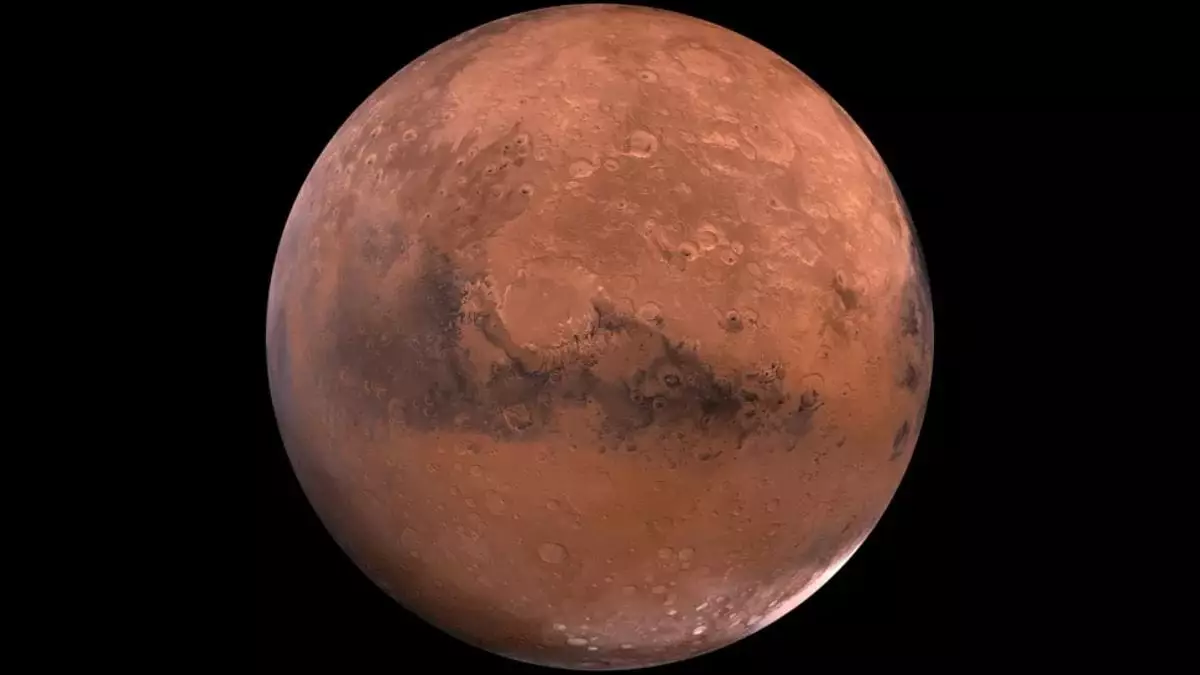For decades, Mars has been portrayed as a cold, desolate wasteland, a red sphere shunned by the warmth of sunlight and covered in icy loneliness. However, new revelations stemming from studies surrounding the Perseverance rover challenge this outdated narrative, painting a picture of a planet that once roiled with a warm, wet climate—a scenario that is almost too tantalizing to believe. The implications of such findings provoke questions not just about Mars, but about what we think we know about planetary evolution and the very essence of habitability in the cosmos.
From Rivers to Lakes: A Transformative Landscape
Recent research published in the *Journal of Geophysical Research: Planets* unleashes a torrent of possibilities about ancient Mars. The study outlines that, at one time, our neighboring planet hosted a mountain of rivers flowing grandly into vast lakes and perhaps an ocean—a drastically different environment when juxtaposed against its current barren surface. By examining geological features like delta remnants and valley formations, scientists are piecing together a narrative that suggests a dynamic hydrology shaped Mars’ topography. We are left to wonder: If Mars could once nurture water systems akin to Earth’s, what catastrophic changes pushed it into its current state of desolation?
The emerging consensus suggests Mars’ climate during its Noachian epoch, approximately 4 billion years ago, was neither frozen nor continuously arid but potentially warm enough to sustain rainfall. This pandemonium of evolution leads inevitably to pivotal questions: How did Mars maintain such warmth? What sources fueled its ancient hydrology? The complexities of these inquiries aren’t merely scientific; they ignite philosophical discussions about our place in the universe and the boundaries of life itself.
The Climate Conundrum: Cloaked in Enigma
Despite the promising discoveries, the overarching climate puzzle remains frustratingly elusive. Astrophysical models indicate that current Martian conditions are inhospitable to liquid water—so how did flowing rivers coexist with a planet that now seems to only engender dry desolation? The paradox ensnares researchers in an intricate web of hypotheses, confounding our understanding of not just Mars’ weather patterns but the broader picture of climate change across celestial bodies.
Amanda Steckel, part of the research team, emphasizes the difficulty of drawing conclusive statements from the data. This acknowledgment adds a layer of tension to the conversation taking place around Mars today. The gap between prehistoric hints of hydrological exuberance and current Martian reality raises eyebrows. How can we be so sure that the climatic conditions could shift, even briefly, to allow for rain and snow?
Implications Beyond Mars: Lessons for Earth
What’s striking about this Mars study is not merely its revelations on Martian history, but the implications it holds for Earth’s narrative. As we grapple with our own climate crisis, the revelations that a neighboring planet’s surface is littered with previously thriving waterways serves as a stark reminder of evolutionary consequence. Each stripe and delta now offers a glimpse into a distant past—one that, while drastically different, could teach us a lesson about our fragile existence.
The quest to understand the dynamics of Mars directly intersects with our ongoing climate issues, reminding humankind of the coalescence of time and environment. If a once-lively Mars succumbed to an inhospitable fate, what warnings are being echoed across the void to a planet teetering on the edge of its own ecological edge?
The Road Ahead: Unraveling More Mysteries
We stand at a pivotal confluence in the exploration of planetary atmospheres and histories. As scientists dive deeper into simulations and layered geological studies, the tantalizing prospect of a thriving Martian past beckons them like sirens in the cosmos. Our understanding of habitability and climate dynamics is intrinsic not solely to our exploration of the universe but also essential for our stewardship of Earth. In an age where misinformation and skepticism reign supreme, these revelations just might be the catalyst for a renewed curiosity toward our own planet’s future. In unraveling Mars’ past, we may be inadvertently steering Earth towards a better tomorrow, by confronting our realities and exploring our options.

